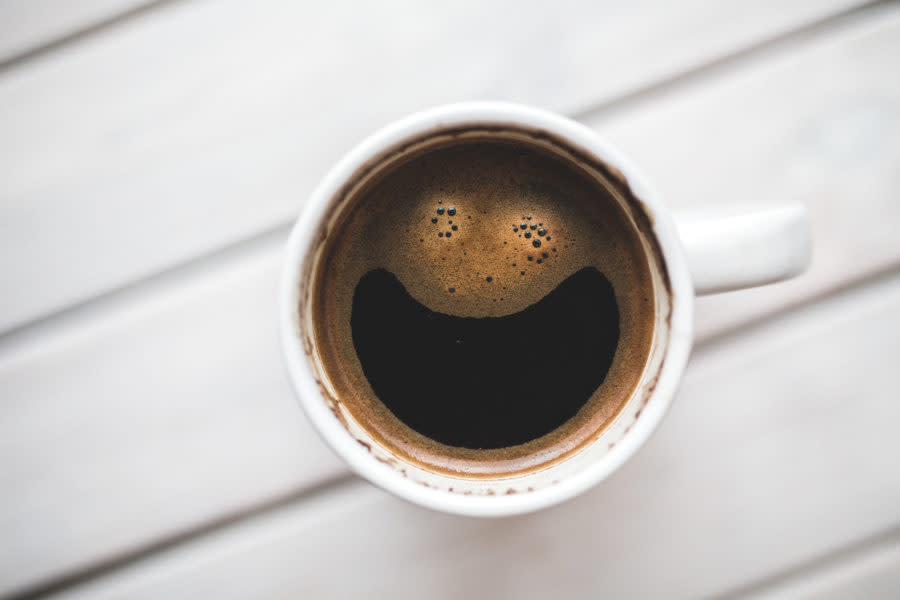This is how much caffeine you can consume until it’s lethal, because we know you’ve secretly always wondered
It’s time to talk about caffeine. Many of us simply cannot start our days without a cozy cup of tea or a piping hot latte, and we truly couldn’t imagine life without a daily dose (or more!) of caffeine.
If you require more than one cup a day to keep you going, you may be drinking too much coffee, and we’re here to tell you exactly how much caffeine is too much for your body to consume safely.
It may be hard to imagine living a caffeine-free life, so the good news is, caffeine is safe in moderation for most of us (except if you’ve got a health condition like stomach ulcers or a heart condition, in which case you should discuss safe caffeine intake with your doctor). But it is true that too much caffeine will kill you, though the risk is unlikely for even the biggest coffee addicts out there.
New York City-based physician Robert Glatter recently told USA Today, “It would likely take anywhere from 50-100 cups of coffee to result in a lethal dose of caffeine. That said, pure powdered caffeine can be lethal if a teaspoon of it is consumed at once. The recommended dose of powdered caffeine in this form is just 1/16th of a teaspoon.”
And even though the average person will likely never drink anywhere near that amount on a daily basis, it’s important to note that caffeine is a stimulant. So even though you may not feel bothered by its physical affects, too much caffeine can make you feel irritable, jittery, and impact your ability to sleep. It can upset your stomach, make your heart race, and give you headaches. But there’s a big difference between feeling a bit jumpy and a lethal level of caffeine in your veins.
The Food and Drug Administration (FDA) recommends that healthy adults stick to caffeine consumption under 400 milligrams a day. That means a healthy adult can enjoy four or five eight-ounce cups of coffee daily without dangerous or negative effects, which seems pretty reasonable.
It’s also important to remember that caffeine isn’t just found in coffee. Caffeine sneakily exists in all kinds of foods, from hot and iced teas to chocolate bars (a Hershey’s Milk Chocolate Bar has roughly nine milligrams of caffeine) to energy drinks and alcoholic beverages. Mixing alcohol and caffeine (such as Red Bull and vodka) can be equally dangerous in high amounts.
Dr. Glatter also said, “Mixing caffeine with alcohol is a dangerous practice because it may lead to higher levels of alcohol consumption as the person often believes and feels they are more alert. The risk of alcohol poisoning increases as people consume more alcohol because they feel the caffeine will keep them awake and alert.”
Plus, caffeine can be found in supplements and medications, such as over-the-counter pain relievers like Advil and migraine medications. And there have been many warnings about the dangers of pure powdered caffeine, weight loss pills, and 5-Hour Energy shots. Of course, to avoid a reaction like Jessie Spano before her geometry exam, you should research any and all supplements you take, checking the safety with your doctor before use.
Another important factor is that caffeine tolerance varies from person to person, but young people and women will have much lower tolerances to caffeine than adult men. Dr. Patricia Broderick, former editor-in-chief of the Journal of Caffeine Research, told Vice that “women are much more susceptible to the effects of caffeine than are men,” and the FDA has not set any safe level of caffeine consumption for children.
Drinking multiple caffeinated beverages in rapid succession likely isn’t a good idea, either, and can have similar effects to binge drinking alcohol. So even if you spent the whole night tossing and turning, you’ll probably not want to down multiple Red Bulls in a row to get through the day.
But before you cut up your Starbucks gold membership card, it may just simply be a matter of observing the effects of caffeine on your own individual body. If you can enjoy your morning latte and feel no ill effects, you likely have nothing to worry about. But if even a small amount of caffeine makes you feel unwell, you may want to experiment with cutting back or sipping decaffeinated beverages instead.
Some people are simply more sensitive to the effects of caffeine than are others, but caffeine in very high amounts is certainly dangerous, especially in supplements, energy drinks, and powdered pills. Always ask your doctor if you’re unsure, but otherwise, enjoy that blissful morning cup of coffee or shot of espresso as you please.


